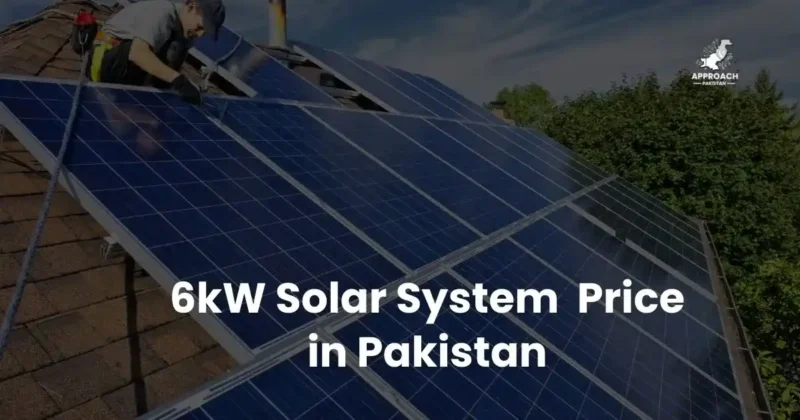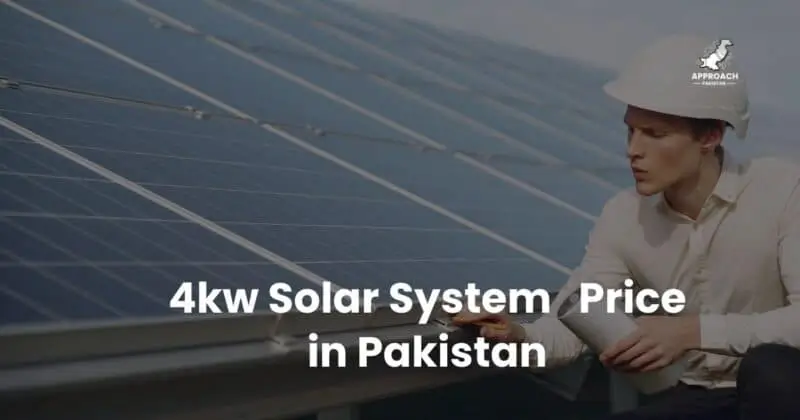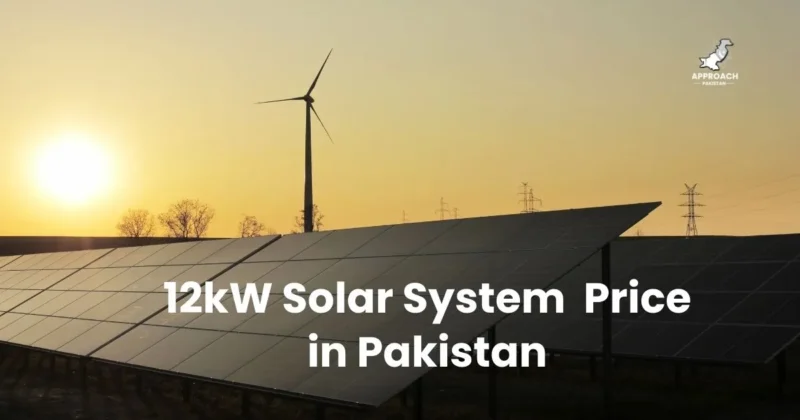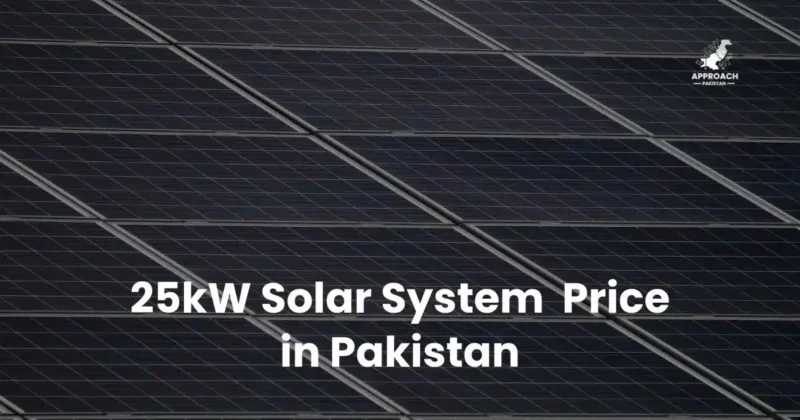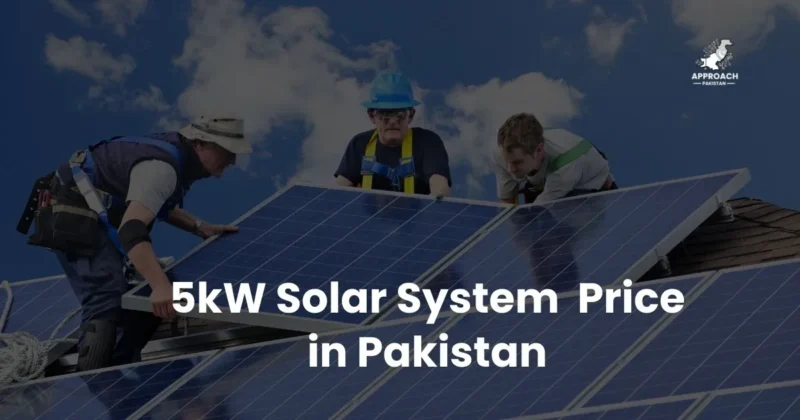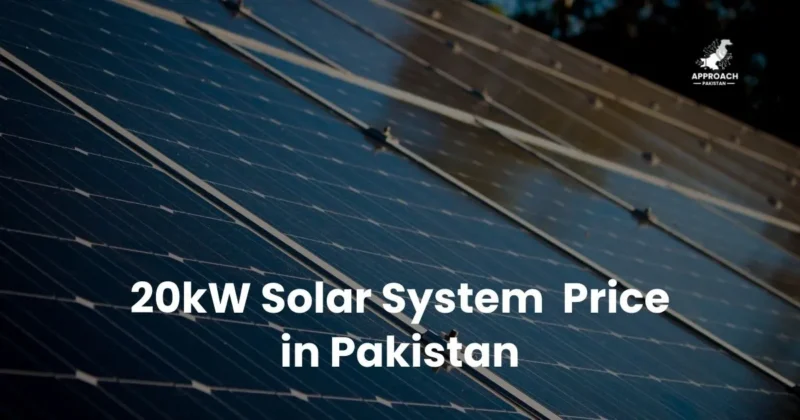8KW Solar System Cost in Pakistan | Prices, ROI & Guide
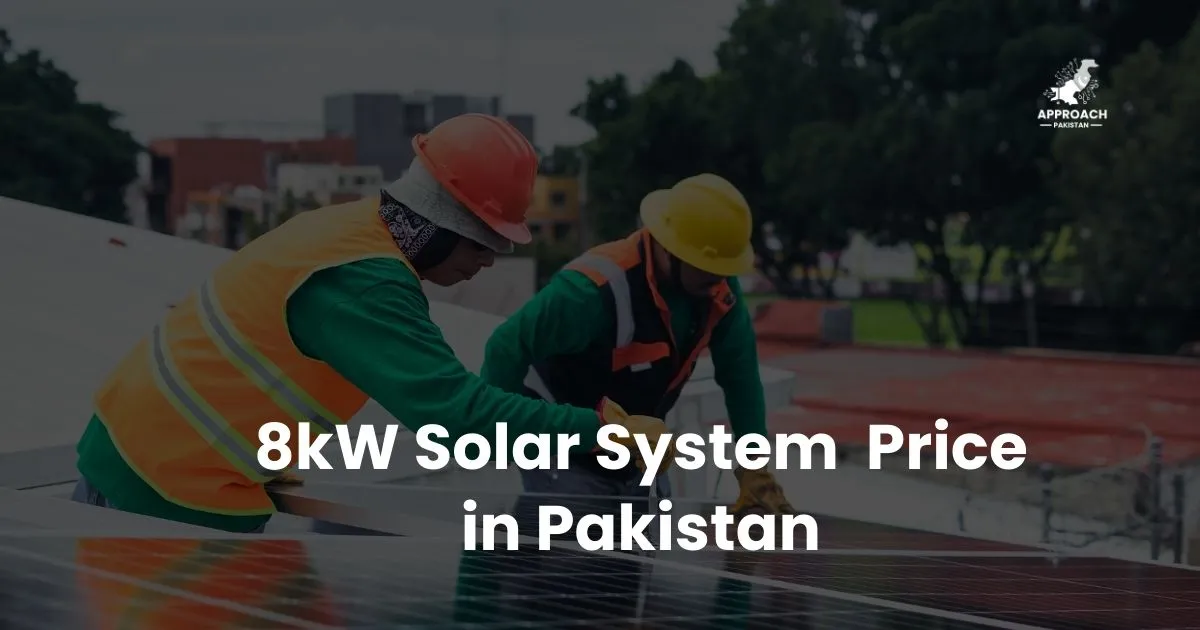
An 8KW solar system in Pakistan costs between PKR 850,000 to PKR 1,200,000 depending on components and installation type. This system generates 30-35 units daily, reduces electricity bills by 70-80%, and pays for itself within 3-4 years through energy savings.
Introduction To 8KW Solar System
Your monthly electricity bill keeps climbing higher each month. Power outages disrupt your daily routine when you need electricity most. You’re tired of paying hefty bills while dealing with unreliable grid power.
An 8KW solar system might be your ticket to energy freedom. It’s the sweet spot for medium to large Pakistani homes that want substantial bill reduction without breaking the bank.
What is an 8KW Solar System?
An 8KW solar system generates 8,000 watts of power under optimal conditions. It consists of 14-16 solar panels, an inverter, mounting structure, and electrical components that convert sunlight into usable electricity for your home.
Think of it as your personal power plant on the roof. When the sun shines, your system produces electricity. Excess power either charges batteries or feeds back into the grid through net metering.
The system runs your essential appliances during the day. At night, you either use stored battery power or draw from the grid at reduced rates.
Why Choose 8KW for Pakistani Homes?
8KW systems perfectly match Pakistani household consumption patterns. Most medium-sized homes consume 800-1200 units monthly, and an 8KW system generates approximately 1000 units per month, covering 70-90% of typical electricity needs.
Pakistani families typically run multiple air conditioners, especially during summer months. An 8KW system comfortably handles 2-3 ACs along with other household appliances.
The system size also qualifies for net metering in most provinces. You can sell excess electricity back to the grid, turning your roof into a money-making asset.
8KW vs Other Capacities Comparison
| System Size | Monthly Generation | Suitable For | Price Range |
| 3KW | 360-450 units | Small homes, 2-3 people | PKR 350,000-450,000 |
| 5KW | 600-750 units | Medium homes, 4-5 people | PKR 550,000-750,000 |
| 8KW | 960-1200 units | Large homes, 6-8 people | PKR 850,000-1,200,000 |
| 10KW | 1200-1500 units | Very large homes, commercial | PKR 1,100,000-1,500,000 |
8KW Solar System Pricing in Pakistan 2025
Complete Price Breakdown
The total cost of an 8KW solar system includes solar panels (40%), inverter (25%), installation (15%), mounting structure (10%), and electrical accessories (10%). Understanding this breakdown helps you make informed decisions and avoid hidden costs.
Here’s what you’re actually paying for:
Solar Panels: PKR 340,000-450,000
- 14-16 panels of 540-580 watts each
- Tier 1 brands cost more but last longer
- Monocrystalline panels offer better efficiency
Inverter: PKR 200,000-350,000
- Hybrid inverters cost more than string inverters
- Premium brands offer better warranties
- MPPT charge controllers included
Installation & Labor: PKR 80,000-120,000
- Professional installation ensures safety
- Includes electrical connections and testing
- Proper mounting prevents roof damage
City-wise Pricing Analysis
Prices vary across Pakistani cities due to transportation costs, local competition, and installation complexity.
Karachi 8KW Solar System Price: PKR 820,000-1,150,000
- Higher competition keeps prices competitive
- Sea air requires better quality mounting
- K-Electric net metering available
Lahore 8KW Solar System Price: PKR 850,000-1,200,000
- Strong dealer network offers variety
- Winter fog affects performance considerations
- LESCO provides net metering support
Islamabad 8KW Solar System Price: PKR 880,000-1,250,000
- Premium market with quality focus
- Government employees get special financing
- IESCO offers streamlined net metering
Peshawar 8KW Solar System Price: PKR 800,000-1,100,000
- Lower labor costs reduce installation fees
- Limited premium brand availability
- PESCO net metering process ongoing
Multan 8KW Solar System Price: PKR 790,000-1,080,000
- Excellent solar irradiation boosts performance
- Agricultural area offers bulk purchase discounts
- MEPCO provides efficient net metering
Price Comparison by System Type
On-Grid 8KW System Cost: PKR 750,000-950,000 No batteries required, lower upfront cost. Perfect for areas with stable grid connection and net metering availability.
Off-Grid 8KW System Cost: PKR 1,200,000-1,800,000 Includes battery bank for complete independence. Ideal for remote areas or those wanting zero grid dependency.
Hybrid 8KW System Cost: PKR 950,000-1,400,000 Combines grid connection with battery backup. Best of both worlds for reliability and savings.
Technical Specifications & Performance of 8KW Solar System
Power Generation Capacity
An 8KW solar system generates 30-35 units of electricity daily under optimal conditions. Monthly production ranges from 900-1200 units depending on weather, season, and installation quality.
Pakistan receives 5-7 hours of peak sunlight daily. Your 8KW system produces maximum power during these hours.
Daily generation varies by season:
- Summer: 35-40 units per day
- Winter: 25-30 units per day
- Monsoon: 20-28 units per day
Space Requirements
An 8KW solar system requires 400-500 square feet of unshaded roof space. Panels need proper spacing for airflow and maintenance access, with optimal south-facing orientation for maximum efficiency.
Panel dimensions matter for space planning:
- Each 540W panel: 9 feet x 4 feet
- Total 15 panels need organized layout
- Maintenance walkways add 20% extra space
Roof considerations include:
- Load-bearing capacity for panel weight
- Age and condition of roof structure
- Nearby buildings creating shadows
Load Management
Your 8KW system comfortably runs these appliances simultaneously:
- 2-3 air conditioners (1.5 ton each)
- 1 refrigerator
- 8-10 LED lights
- 4-6 ceiling fans
- 1 washing machine
- TV and other electronics
Peak load calculations help avoid overloading:
- Total load shouldn’t exceed 6-7KW simultaneously
- Heavy appliances need staggered operation
- Smart load management maximizes efficiency
Component Analysis & Selection
Solar Panels for 8KW Systems
Tier 1 brands like Longi, Jinko, and JA Solar offer the best performance and warranties for 8KW systems. Monocrystalline panels provide 20-22% efficiency compared to 17-19% for polycrystalline panels.
Longi Solar Panels
- 25-year performance warranty
- 22% efficiency rating
- Excellent low-light performance
- Price: PKR 28-32 per watt
Jinko Solar Panels
- Tiger Neo series offers premium performance
- 21.8% efficiency rating
- Strong presence in Pakistan
- Price: PKR 26-30 per watt
JA Solar Panels
- DeepBlue 3.0 technology
- 21.5% efficiency rating
- Good value for money
- Price: PKR 25-29 per watt
Inverter Options
Hybrid inverters offer the best value for 8KW systems in Pakistan. They handle grid-tie, battery charging, and backup switching automatically. String inverters cost less but lack battery integration capabilities.
Top Inverter Brands:
Goodwe Hybrid Inverters
- 10-year warranty standard
- Built-in MPPT charge controller
- WiFi monitoring included
- Price: PKR 180,000-280,000
Growatt Hybrid Inverters
- Excellent efficiency ratings
- User-friendly mobile app
- Strong after-sales support
- Price: PKR 160,000-250,000
Inverex Hybrid Inverters
- Local assembly, good support
- Competitive pricing
- Suitable for Pakistani conditions
- Price: PKR 140,000-220,000
Battery Storage Solutions
Lithium batteries offer 3-4 times longer life than lead-acid batteries. While initial cost is higher, lithium provides better ROI over 10+ years. Lead-acid batteries suit budget-conscious buyers with shorter payback expectations.
Lithium Battery Advantages:
- 6000+ charge cycles
- 95% depth of discharge
- Compact size and weight
- 10-year lifespan
Lead-Acid Battery Benefits:
- Lower upfront cost
- Easy replacement and recycling
- Local service availability
- 3-5 year typical lifespan
For 8KW systems, battery sizing depends on backup requirements:
- Full day backup: 1200-1500Ah capacity
- 4-6 hours backup: 400-600Ah capacity
- 8-10 hours backup: 800-1000Ah capacity
8KW System Installation Process & Requirements
Pre-installation Assessment
Professional site survey identifies roof suitability, electrical requirements, and potential challenges before installation begins. This prevents costly mistakes and ensures optimal system performance.
Site survey checklist includes:
- Roof structural assessment
- Electrical panel evaluation
- Shading analysis throughout the day
- Local regulations and permits needed
Load analysis determines exact requirements:
- Current electricity consumption patterns
- Peak demand calculations
- Future expansion considerations
- Appliance startup requirements
Installation Timeline
Complete 8KW system installation takes 2-3 working days with proper planning. Weather conditions and roof accessibility can extend this timeline by 1-2 additional days.
Day 1: Mounting structure installation
- Roof preparation and marking
- Drilling and fixing mount points
- Installing rails and clamps
Day 2: Panel and electrical installation
- Mounting panels on structure
- DC wiring between panels
- Inverter and monitoring setup
Day 3: Grid connection and testing
- AC wiring to main panel
- Net meter installation (if applicable)
- System commissioning and testing
Permits & Documentation
NEPRA approval requirements:
- System design and component specifications
- Electrical safety certificates
- Professional installer credentials
- Grid connection applications
Net metering documentation:
- Commercial operation approval
- DISCO application forms
- Technical system details
- Electrical safety inspections
Net Metering & Grid Connection Of 8 Kilo Watt System
Net Metering Benefits
Net metering allows you to sell excess electricity back to the grid at predetermined rates. Current sell-back rates range from PKR 7-12 per unit depending on your distribution company and system size.
Monthly credit calculations work like this:
- Units consumed from grid: Charged at normal tariff
- Units fed back to grid: Credited at net metering rate
- Net bill: Consumption minus generation credits
Annual savings projections:
- Average 8KW system saves PKR 40,000-60,000 monthly
- Annual savings: PKR 480,000-720,000
- 25-year savings: PKR 12-18 million
Grid Connection Process
DISCO requirements vary by region:
- Technical specifications submission
- Safety inspection schedules
- Meter replacement procedures
- Commercial operation timelines
Connection timeline typically spans:
- Commercial operation: 1 week
- Application submission: 1-2 weeks
- Technical review: 2-3 weeks
- Site inspection: 1 week
- Meter installation: 1-2 weeks
Common Issues & Troubleshooting
Performance degradation signs include reduced daily generation, inverter error messages, or visible panel damage. Most issues require professional diagnosis and repair.
Inverter problems typically involve:
- Display error codes
- Grid synchronization issues
- Overheating in summer
- Communication failures
Panel defects may include:
Connector corrosion over timeake informed decisions. Compare hybrid vs other system types to see which configuration maximizes your investment.
- Hot spots from partial shading
- Physical damage from weather
- Micro-cracks affecting performance
Future Expansion & Upgrades
8KW systems can typically expand to 12-15KW by adding panels and upgrading the inverter. Planning for future expansion during initial installation saves costs and ensures compatibility.
System scalability options:
- Add 2-4KW within existing structure
- Upgrade inverter for higher capacity
- Expand battery bank for more storage
- Install additional monitoring features
Technology trends affecting upgrades:
- AI-powered monitoring and optimization
- Higher efficiency panels becoming standard
- Smart inverters with grid support functions
- Battery costs declining rapidly

